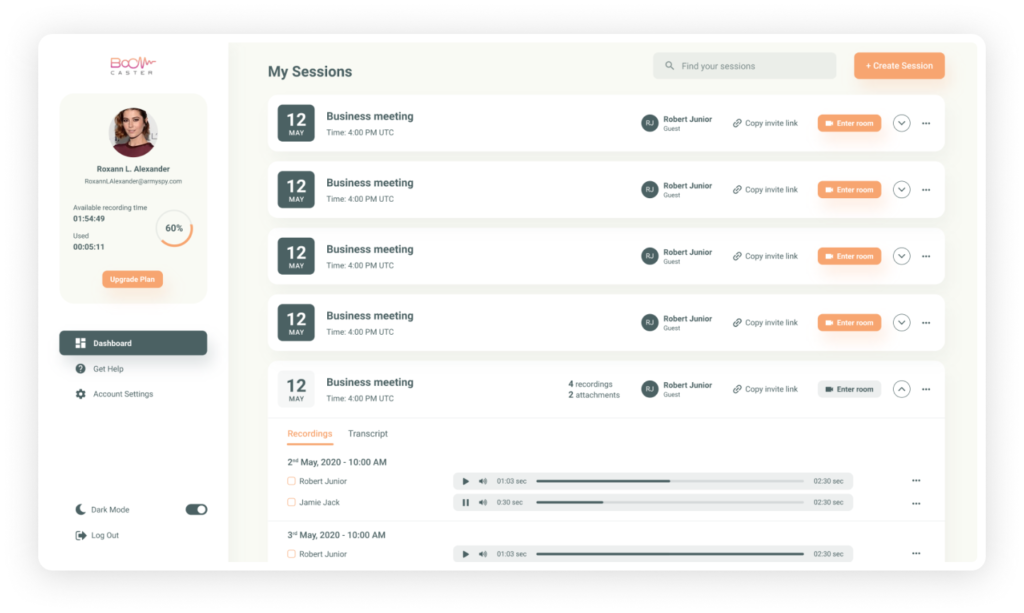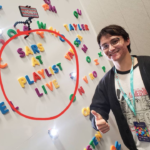According to Edinson Researcher’s Infinite Dial Report, more than half of Americans listen to at least 2-3 podcasts every week. And when you compare these numbers on a global scale, the figures are mind-boggling.
The year 2020 has been a revelation for the podcast industry, as experts suggest that the community grew by almost 35%, and it will keep growing for another decade.
So just like any smart millennial, if you are also planning to jump on the bandwagon and start your Podcast channel, you are at the right place.
Starting an independent podcast may seem an easy idea on paper, but there is loads of planning and preparation that go behind the scenes, from selecting the perfect podcasting software to choosing a suitable format for yourself. And we are here to break that down for you. Below, we have prepared a complete Step-by-Step tutorial to start a podcast.
So without further ado…. Lights, Camera, and Action!
Creating a Roadmap
Planning your podcast is probably the most important part of the process. Creating a definitive roadmap on how you want to start everything from scratch with limited resources can prove instrumental in the long run.
Here is a list of things that should be top of your list while planning your Podcast:
1. Choosing a format
Picking a format that suits your style of communication and intellect can make your podcast far more engaging & relatable. If you are someone who loves to interact, Conversational & Interview podcasts would work best for you. In easy words, it is defined as Video Podcasting.
Whereas, if your primary weapon is creativity, then something like Theatrical and Monologue Podcasts is perfect for you. Again, choosing a format is all about your personality and preference. So having a one-on-one session with yourself is necessary before taking this step.
2. Your Audience
After picking a format, you have to choose your target audience. This again is a very personal choice to make, because, at the end of the day, you will be making content for them. So for suggestions, do quick market research.
Learn about your audience, research what kind of content they are consuming currently, and on what platforms they primarily operate. Once you are past these bases, you will have a definitive answer of “Who” is your target audience.
3. Purpose of your Podcast
Creating a podcast or indulging in any kind of creative activity requires a lot of inspiration that comes from within. So before you start, you have to be clear with the actual purpose of your podcast. Do you plan to inspire people and do you want to educate them with your knowledge?
Or maybe, you just want to give your viewers a joy ride with your sarcasm and humor? It all depends on who you are and how you want to see your podcast in the next 5 years.
Quick Tip: Stats suggests that Podcasts with witty and out-of-the-box names gain the initial leverage quickly when compared to any normal podcast. So make sure you do a quick brainstorming session and add a little humor before finalizing the name of your podcast
Executing the Plan
Once you are done with creating the roadmap, you need to start with the execution of it. This part, however, consists of many smaller steps, like choosing the right equipment & software, recording the episodes, and then finally releasing them
For better understanding, we’ve tried to break down each one of these aspects as every step holds its unique significance:

1) Choosing the right Equipment & Software
● Equipment
The majority of the podcasters face a cash crunch while starting. And investing in top-notch equipment can be troublesome. However, this shouldn’t be a hurdle for you, because, for starters, any mic that has a decent output and apt frequency response could work just fine. In case you are into video podcasting, a smartphone camera, or any entry-level DSLR would be perfect for beginners.
But once you feel like you have a decent audience to cater to and want to improve your content quality, you can go with top-of-the-line mic brands such as Shure, Rode, and Sennheiser.
● Software
Most of the time, Podcast is one of those things that doesn’t require hardcore processing or editing. But in reality, this is one area where budding podcasters can lose significant ground to their competitions.
We would suggest you go for software that provides quality but is also practical and efficient. Something like a Boomcaster. Not only it offers a brilliant user experience, but it is also strategically priced for both young and experienced podcasters.
Recording the Episodes
After you are sorted with hardware & software, recording the episodes comes next.
When you are starting, try making a pre-start schedule, which should include a quick warm-up session of your vocal cords. According to pod news, the average length of a podcast is anywhere between 35-37 minutes. This time frame can feel extensive if you are not used to talking for an extended period, so it is suggested to warm up before going live.
Then comes the actual recording part. Well, for basics, we suggest recording in a rather confined space with minimal noise leak. As video podcasting is all about the quality of content, video & audio, it is very important to avoid finding a place that suits all of these aspects.
While you are in a podcast, controlling your breath while speaking can eliminate any random sound distortion for the users, which will further create a strong connection between the audience and your podcast.
At last, we would suggest a very basic but necessary thing. That is backing up your audio files. Because just in case you lose the original one, you have a backup safe and secured. This again can depend on the podcasting software you are using. Boomcaster provides a double recording feature that automatically creates a copy of every podcasting session you do.
Summing it Up!
While it may not seem like an easy sail at first, Podcasting is one of the most entertaining industries to be in. When compared, no industry provides you such liberty and knowledge at the same time, and if you are planning to follow the footsteps of successful podcasters like Joe Rogan and Carlos Mencia, this certainly is the perfect time to start.
Audio podcast or Video podcast, no matter which type you choose, if you are equipped with a plan-to-action, a superb podcasting software that could enhance your content, and some hardware for recording, you are good enough to make a mark in this industry. Visit https://melonapp.com/how-to-start-a-podcast/ to learn more about how to start a podcast.








